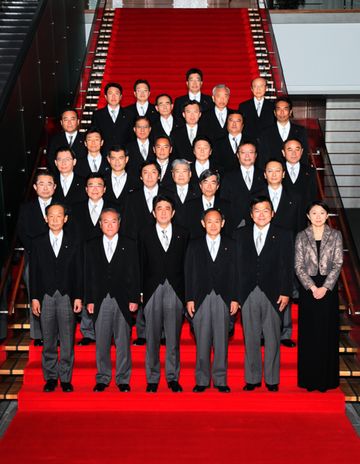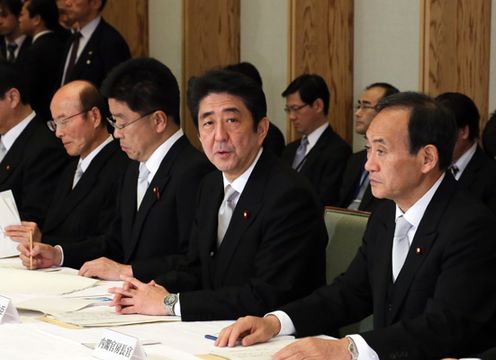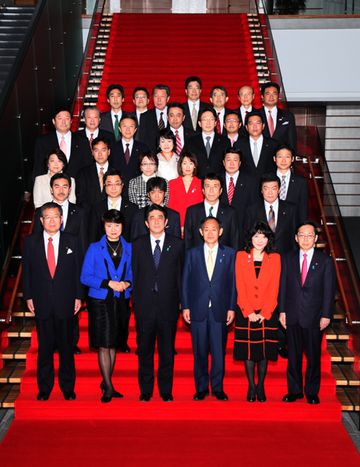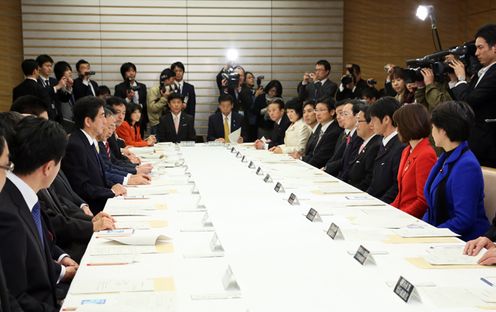Home > News > The Prime Minister in Action > December 2012 > Decision on Senior Vice-Ministers and Parliamentary Secretaries
Decision on Senior Vice-Ministers and Parliamentary Secretaries
Thursday, December 27, 2012

Photograph of the Prime Minister attending a commemorative photograph session with the senior vice-ministers

Photograph of the Prime Minister delivering an address at the first meeting of the senior vice-ministers

Photograph of the Prime Minister attending a commemorative photograph session with the parliamentary secretaries

Photograph of the Prime Minister delivering an address at the first meeting of the parliamentary secretaries
The senior vice-ministers and the parliamentary secretaries of the Second Abe Cabinet were decided at the Cabinet meeting on December 27.
Prime Minister Shinzo Abe attended the attestation ceremony at the Imperial Palace with 25 senior vice-ministers, who had assembled at the Prime Minister's Office. Prime Minister Abe and the senior vice-ministers thereafter returned to the Prime Minister's Office and attended a commemorative photograph session, which was also joined by Mr. Yoshihide Suga, Chief Cabinet Secretary, and others. Prime Minister Abe then attended the first meeting of the senior vice-ministers.
Afterward, Prime Minister Abe delivered letters of appointment to 27 parliamentary secretaries, who had assembled at the Prime Minister's Office. The Prime Minister then attended a commemorative photograph session and the first meeting of the parliamentary secretaries.
In his addresses at both meetings, Prime Minister Abe said,
"For more than three years, both internal and external affairs continued to veer off course due to political confusion caused by inappropriate political leadership, resulting in numerous critical situations including delayed reconstruction, prolonged deflation and the weakened Japan-U.S. alliance.
In order to overcome this crisis and to restore "a Japan we can be proud of," the Abe Cabinet decided its basic policies, as I have handed out.
First of all, we will accelerate the reconstruction from the Great East Japan Earthquake. Especially, the national government will take responsibility in realizing the revival of Fukushima. On that basis, we will put efforts into the revival of the economy. We will overcome deflation and the yen appreciation, and we will revive the Japanese economy. We will also recover the situation of foreign affairs and security. We will restore the Japan-U.S. alliance of trust, and will implement "proactive diplomacy that defends our national interests." There is also the revival of education. We will realize the world's top level in academic ability and nurture awareness of the importance of discipline and respect for history and culture. Lastly, there is the revival of living. We aim to establish a sustainable social security system. We will also promote the nation's infrastructure resilience and take every possible crisis management measure.
Further, in order to overcome these crises, we must call on the public servants to also exert their potential to the fullest extent. We will clearly define the separation of roles and responsibility between politics and bureaucrats, and we would like to carry forward the creation of a "new Japan" led through true political leadership based on mutual trust."



